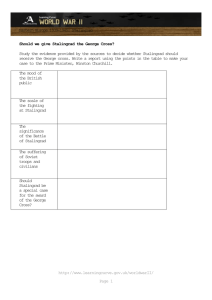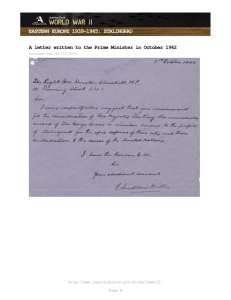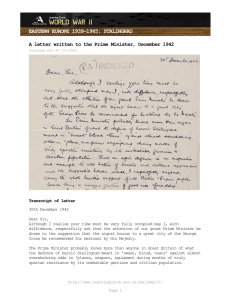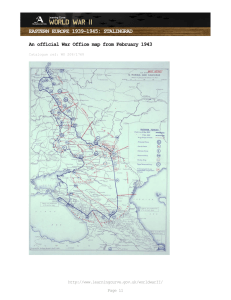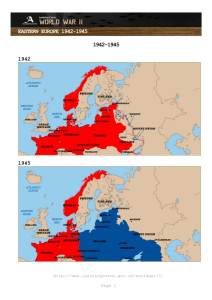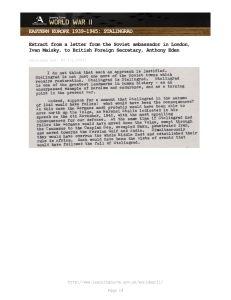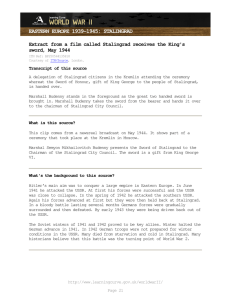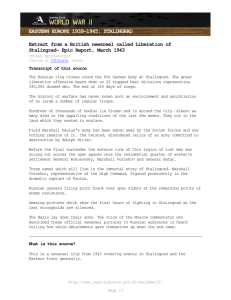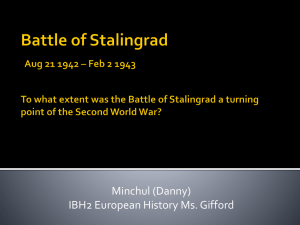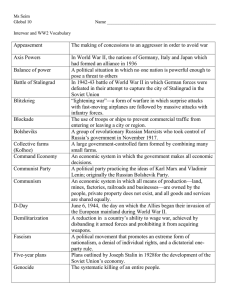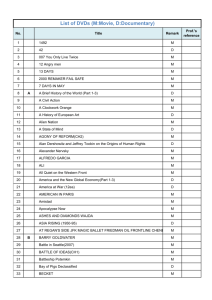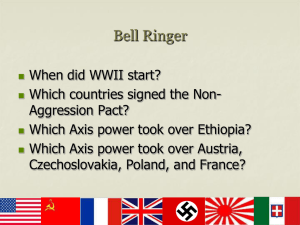EASTERN EUROPE 1939-1945: STALINGRAD The key question:
advertisement
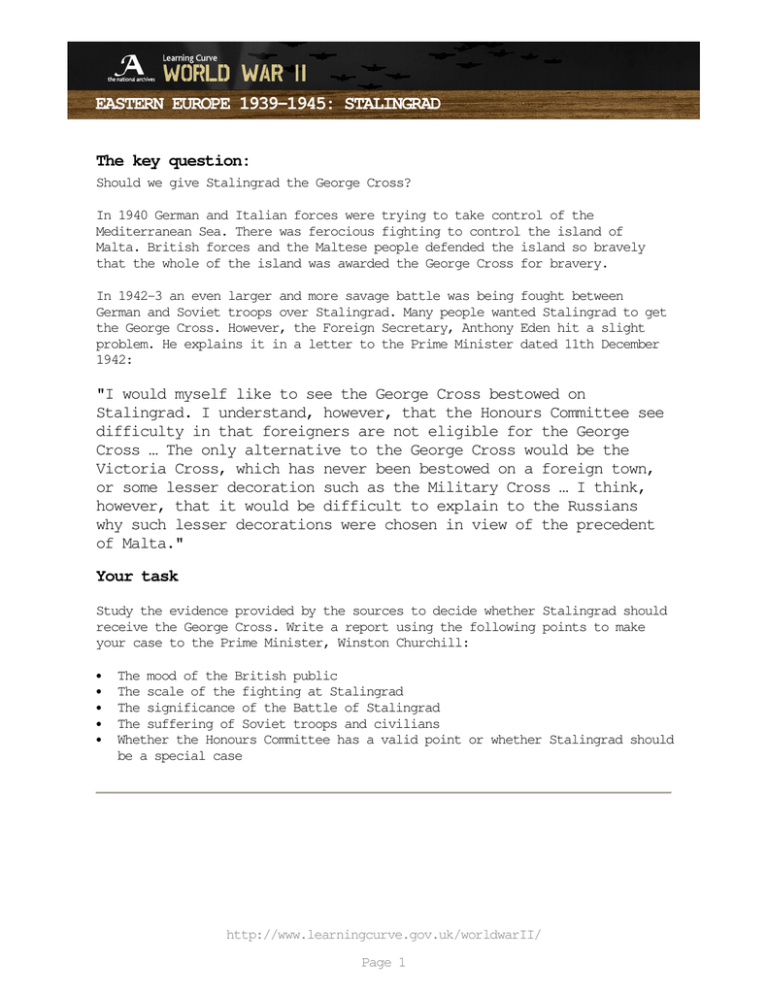
EASTERN EUROPE 1939-1945: STALINGRAD The key question: Should we give Stalingrad the George Cross? In 1940 German and Italian forces were trying to take control of the Mediterranean Sea. There was ferocious fighting to control the island of Malta. British forces and the Maltese people defended the island so bravely that the whole of the island was awarded the George Cross for bravery. In 1942-3 an even larger and more savage battle was being fought between German and Soviet troops over Stalingrad. Many people wanted Stalingrad to get the George Cross. However, the Foreign Secretary, Anthony Eden hit a slight problem. He explains it in a letter to the Prime Minister dated 11th December 1942: "I would myself like to see the George Cross bestowed on Stalingrad. I understand, however, that the Honours Committee see difficulty in that foreigners are not eligible for the George Cross … The only alternative to the George Cross would be the Victoria Cross, which has never been bestowed on a foreign town, or some lesser decoration such as the Military Cross … I think, however, that it would be difficult to explain to the Russians why such lesser decorations were chosen in view of the precedent of Malta." Your task Study the evidence provided by the sources to decide whether Stalingrad should receive the George Cross. Write a report using the following points to make your case to the Prime Minister, Winston Churchill: • • • • • The mood of the British public The scale of the fighting at Stalingrad The significance of the Battle of Stalingrad The suffering of Soviet troops and civilians Whether the Honours Committee has a valid point or whether Stalingrad should be a special case http://www.learningcurve.gov.uk/worldwarII/ Page 1 EASTERN EUROPE 1939-1945: STALINGRAD A letter to the Prime Minister, September 1942 Catalogue ref: FO 371/33035 http://www.learningcurve.gov.uk/worldwarII/ Page 2 EASTERN EUROPE 1939-1945: STALINGRAD What is this source? This source is a letter sent to British Prime Minister Winston Churchill in September 1942. The letter was actually handled by the Foreign Office because that department handled issues relating to other countries. What’s the background to this source? Hitler’s main aim was to conquer a large empire in Eastern Europe. To do this he needed to defeat the USSR. In June 1941 he launched Operation Barbarossa. This was a devastating lightning attack on the USSR. Soviet leader Stalin seriously considered surrendering. Only the arrival of a Russian winter stopped the German advance in 1941. In 1942 the Germans launched a new offensive in the south of the USSR. They wanted to capture the oilfields of the Caucasus region. The key to this area was the large city of Stalingrad. At first the Germans were very successful. They reached the edge of the city by the end of July 1942. However, from this point on they had to fight their way through the wreckage of the bombed and shelled city. At the time of this letter, the Germans were slowly driving Soviet forces back, but with heavy casualties. It's worth knowing that… The city controlled the River Volga, a key transport route. Of course it had huge symbolic importance because it was named after Soviet leader, Josef Stalin. Its capture would have been a major propaganda achievement. The Germans did not have enough resources to attack Moscow, the capital of the USSR. They attacked Stalingrad because they thought it would bring them an easy victory. How will you use this source? 1. What do the three typists want Churchill to do? 2. Where do you think the typists might have got their information about events in Stalingrad? http://www.learningcurve.gov.uk/worldwarII/ Page 3 EASTERN EUROPE 1939-1945: STALINGRAD 3. Does this letter help you to measure the mood of the British public? 4. Does this source help you to understand the importance of the Battle of Stalingrad, or what it was like to be there? 5. Is there any part of this source you would quote in your final report to the Prime Minister? Use the report table to help plan your report. http://www.learningcurve.gov.uk/worldwarII/ Page 4
